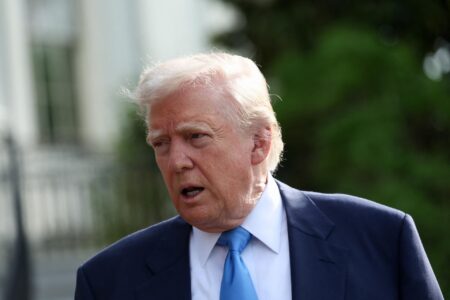Japan’s Economic Landscape Amidst U.S.-China Trade Tensions
In the intricate realm of global trade, few issues have stirred as much debate and concern as the ongoing trade conflict between the United States and China. The escalation of tariffs and retaliatory actions has repercussions that ripple beyond these two economic giants, with nations like Japan finding themselves in a challenging predicament. With deep-rooted economic connections to both Washington and Beijing, Japan is tasked with safeguarding its interests while navigating the turbulent waters of this conflict. This article explores how aggressive trade strategies from the Trump governance are transforming Japan’s economic environment, compelling it to reassess its alliances and consider potential impacts on its export-driven economy.
Impact of Trade Conflict on Japan’s Economic Stability
The current trade dispute between the U.S. and China casts a notable shadow over Japan’s economy, raising alarms about its stability. As a nation intricately linked to both superpowers, Japan faces considerable challenges due to tariff-induced disruptions and shifting supply chains. The Japanese yen has seen notable fluctuations amid heightened market instability, leading investors to reevaluate their approaches. Key sectors such as automotive manufacturing and electronics, which heavily depend on exports to both countries, are particularly vulnerable due to rising tensions and possible retaliatory tariffs.
The ramifications extend well beyond immediate market reactions; Japanese companies must now pivot strategically by diversifying their supply chains and seeking new markets for growth. These necessary adjustments not only elevate operational costs but also threaten Japan’s long-standing position as a manufacturing powerhouse. Recent analyses indicate:
| Sectors Affected | Tariff Impact Summary |
|---|---|
| Automotive Industry | A surge in tariffs resulting in increased production expenses. |
| Electronics Sector | Supply chain interruptions affecting product availability. |
This strategic realignment is essential for maintaining Japan’s competitive edge within an increasingly cutthroat global marketplace.
Japan’s Strategic Approach Amidst U.S.-China Tensions
The ongoing complexities of U.S.-China relations place Japan in a delicate situation where it must protect its economic interests while addressing geopolitical consequences. With substantial trading relationships with both nations at stake, Japanese policymakers are exploring various strategic avenues including:
- Diversifying Trade Relationships: Actively pursuing stronger ties with regional partners such as ASEAN countries can help mitigate reliance on American or Chinese markets.
- Pioneering Technological Advancements: Focusing on innovation will enhance competitiveness within manufacturing sectors against firms from both superpowers.
- Cultivating Foreign Policy Alliances: By reinforcing connections with the United States alongside fostering relationships across Europe and Indo-Pacific nations,Japan aims for collective strength against China’s assertiveness in Asia-Pacific affairs.
Additionally,japan is proactively adjusting regulations by implementing measures designed to support industries impacted by tariffs while engaging in discussions around multilateral trade agreements aimed at bolstering economic resilience.A significant initiative includes collaborations focused on technology sharing along with agricultural export programs that could enhance japan’s international negotiating power.The following table highlights key sectors affected by these ongoing tensions:
| sectors Impacted | Description of Effects | Tactical Responses |
|---|---|---|




